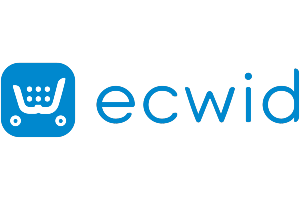💸 See if your business qualifies for a tax credit worth up to $26k per employee. 📞 Call Now: 855-979-9597
Best Free Ecommerce Platforms of 2023
Data as of 01/10/22. Offers and availability may vary by location and are subject to change.
We are committed to sharing unbiased reviews. Some of the links on our site are from our partners who compensate us. Read our editorial guidelines and advertising disclosure.
To make ecommerce a little bit easier, we found the top free ecommerce platforms that allow you to get your business up and running with no additional overhead charge. Some of these brands only offer a free trial while others are 100% free to use and sell your products.
We looked at over three dozen brands, comparing usability, price, and features to come up with our list. At the end of the day, Square Online—part of the Square family of brands, which includes POS and payroll—came out on top. It’s completely free to use and is the best for launching an ecommerce store because it includes payment process, inventory management, selling, and shipping all in one place.
As you launch your online shop, you can’t go wrong with any of these brands. Although some options are best for existing brands and websites while others can easily help you build from scratch, each of our top five choices will make sure your website puts your ecommerce business first.
Best Free Ecommerce Platforms
- : Best overall
- : Best for building a new online store
- : Best ecommerce site for all businesses
- : Best for regular ecommerce
- : Best for WordPress sites
Although each platform is technically free, there are hidden fees associated with each one—from transaction fees to domain and hosting costs. Hidden costs are one of the most important things to look out for when choosing a brand, especially one that appears to be free.
You’re looking for a platform that can host your web store and help process sales, which all of these brands can do, so what elevates them above each other?
It’s simple: cost and features.
Each one has free ecommerce options and almost all of the brands provide free templates and tools to build a new online store for your business. But they’re not all the same—and they’re not going to be right for each business. So, as you check out our top options, be sure to learn more about the brands that will work best for your business.
Square Online: Best overall
Data as of 12/15/22. Offers and availability may vary by location and are subject to change.
Square Online is our top choice for one simple reason: it offers everything you need to start an online store for free. You can host and sell unlimited products with no monthly fee and easily build your own website. It really seems almost too good to be true!
But Square Online is our top platform because it has everything you could want to get your business online, and it integrates with the Square platform to make checkout, inventory management, and shipping easy. Plus, if you already use Square for your brick-and-mortar business, you can easily integrate finances and products.
Square Online works with food and beverage businesses, professional service businesses (like beauty, health, and repair), non-profit organizations, and enterprise businesses.
What’s amazing about Square Online is how much control it gives you over inventory, delivery, and POS—all for free. For instance, integrating with Square POS allows your business to keep track of sales and inventory both online and in a brick-and-mortar store. This makes it easier for you to keep track of what’s available to sell and push your business beyond ecommerce.
A small business, like a toy store, could sell online and have curbside pickup for inventory that is stored in a physical store. Having the inventory integration allows the toy store to keep track of what’s available to sell and keep customers happy. Plus, Square accepts all major credit cards so you can make the sale.
With Square Online, you get built-in SSL certificate security, multiple delivery options, automatic inventory sync, SEO features, and social media integration. Plus you can sell digital and physical goods along with tickets and services. An ecommerce platform like this is hard to come by. With features for businesses from retail to restaurants to non-profit organizations, Square Online is the best free ecommerce platform out there for everyone.
Squarespace: Best for building an ecommerce store
Data as of 12/15/22. Offers and availability may vary by location and are subject to change.
You probably already know Squarespace for its great web design, but its online store platform—where you can “sell anything”—takes it up a notch. Squarespace comes with a website builder and ecommerce store, and it's a fully hosted ecommerce platform. So although Squarespace only has a 14-day free trial, it is one of the best ecommerce platforms out there.
Use easily customizable templates to start the store and then add products or services to get your business online in six easy steps. Squarespace’s integrated systems allow you to manage sales and checkout without ever leaving your site. Plus, with integrated tools from FedEx, Stripe, TaxJar, and others, you can take advantage of a range of applications to expand your business’s ecommerce reach.
Of course, there are downsides to Squarespace. From only offering a free trial to no phone support from customer service, you don’t really have a lot of options after starting with Squarespace. You want your website to feel supported, and with Squarespace that’s hard unless you move to a paid plan.
But why is Squarespace best for building an ecommerce store? It’s simple: the six steps. It has outlined the easiest way to build a site and still make it look good. Ecommerce templates help you decide the shape and layout of your store, and then you can set up inventory. As a business owner, you don’t have time to design a new website from scratch, and Squarespace knows that.
Squarespace also works for restaurants, or places selling subscriptions, digital content, or services. They have templates for media and podcasts as well as community and non-profit organizations.
After setup, you can customize your categories and content, optimize with SEO, and start marketing. Yes, it’s that easy.
Wix: Best for all businesses
Data as of 12/15/22. Offers and availability may vary by location and are subject to change.
With a free custom domain to build your site, Wix offers businesses custom branding upfront for a competitive edge. Although it's not as great as Square Online, it has a lot of features that elevate it above the competition. Plus, it has built-in payment processing and shipping options and allows you to host unlimited products on the site, which makes it easier to start and expand your store.
If you’re looking to go further, the paid plans are reasonably priced and offer more features to help your business grow, including:
- Subscriptions
- Marketplace options
- Dropshipping
- Priority customer care
Why do these matter? Because they give your business room to grow. During the COVID-19 pandemic, many businesses pivoted to offering monthly subscriptions for goods and selling on marketplaces like Amazon, Etsy, and eBay. Wix makes it easy to do that from your already built ecommerce website.
Now the fees are what bring Wix down. There are transaction fees for any purchase made on your site, and the Business Basic plan—which has the lowest cost—is the second-most expensive plan in our top five.
And if you decide you don’t like Wix, it doesn’t make it easy to migrate your site to a different platform. In fact, you can’t transfer your site or themes after you’ve designed it. So although Wix is really good overall, you have to be ready to stick with it for the long haul or risk starting over.
Overall, Wix benefits every business from restaurants and hotels to retail and digital services. There’s a dashboard that helps track everything, like orders and payments to storefronts, and tracking ensures your products get where they need to go.
Although you’ll have to be prepared to stay with Wix long term, it offers a lot of great features plus a custom domain and free hosting. It’s one of the better options for ecommerce setup out there, and with multiple plans, there are options for all kinds of businesses.
Shopify: Best for regular ecommerce
Data as of 12/15/22. Offers and availability may vary by location and are subject to change.
Shopify is the reigning champion of paid ecommerce. It’s a well-known and respected brand that does great work building online stores and integrating inventory with warehouses, pop-ups, and brick-and-mortar stores. After a 14-day free trial, the plans are priced reasonably—they do get expensive quickly, but it adds a lot of features for the Advanced Shopify plan.
The big detriment to Shopify is actually with its integrations and their prices. Although it has a lot of add-ons and integrations that build out your website and expand your platform, some of them cost money. For instance, Shopify’s POS system is $89/mo.—most website themes cost on average $180, and a custom domain name starts at $11 per year. At the end of the day, you’ll be looking at these additions:
- POS
- Inventory management
- Item sync
- Website theme
- Custom domain
Add to that the fact that shipping and inventory tracking aren’t a huge part of the platform, and you have an ecommerce website builder that costs a lot more than you would expect upfront. The other thing to notice is that Shopify’s plans cost the most out of any software here. Is it worth it? Maybe.
Now, why do we think Shopify is best for regular ecommerce? It’s simple: Shopify is the known brand for ecommerce, and they manage it well. However, we don’t think it’s the best. (Square Online takes that spot.) The reason is that the integrations can add up and Square Online offers those integrations for free. Shopify isn’t the best platform out there for free ecommerce, but you’ll see it as a top integration for many other platforms and that’s why it still gets our vote for regular ecommerce.
Overall we think Shopify is a good platform. It has some issues, but it takes care of a lot of the ecommerce issues that retailers and businesses could be facing. If you’re looking to expand your footprint in ecommerce, Shopify is a good choice—just beware of the hidden costs and fees when building your online store.
WooCommerce: Best for WordPress sites
Data as of 12/15/22. Offers and availability may vary by location and are subject to change.
WooCommerce is a free, open source software that works as a WordPress plug-in to create an ecommerce site. With this plug-in, you can organize and set up inventory and an ecommerce store. Integrations can also collect payments, track revenue, and even provide shipping savings through USPS and DHL. It’s easy to use and the dashboard has a familiar interface that makes it easy to track orders.
So, what’s the catch? Well, although there is technically no cost for WooCommerce, there are costs to having a WordPress site—ranging from $4/mo. to $45/mo. Then once you factor in integrations and other add-ons, the cost skyrockets. Site security costs could reach $780 per year while email marketing would be an additional $120. There are a lot of hidden fees and extra costs that come up with integrations and they add up fast!
WooCommerce is a good option for a store that already has a WordPress site and wants to expand into ecommerce. It's a plug-in that is outfitted specifically for WordPress—and it’s free! But for it to work you need to first have a WordPress site.
WooCommerce does not help with design and is open source software that may require computer programming knowledge. It’s good if you’re ready to branch out your website, but make sure you know what you’re paying for at the end of the day.
By signing up I agree to the Terms of Use and Privacy Policy.
Honorable mentions
We’ve got three other ecommerce software platforms that do really well and have free options. However, they’re not the best, and each has something that brings it a step below our top five choices. Each platform offers something different: Ecwid is a shopping cart add-on, BigCommerce integrates sales channels for revenue up to $400,000 per year, and Big Cartel integrates onto your WordPress site.
If you haven’t been able to find what you need for your business above, we may have the answer here.
Honorable Mentions: Free ecommerce platforms
- : Best to add on
- : Best for scaling up
- : Best for artisans
Honorable mention ecommerce platforms at a glance
Data as of 12/15/22. Offers and availability may vary by location and are subject to change.
* This is for the free Ecwid plan. Paid plans offer unlimited products.
º This is for the free Big Cartel plan. The Diamond plan offers up to 500 products.
Ecwid: Best to add on
Data as of 12/15/22. Offers and availability may vary by location and are subject to change.
Ecwid is an open source ecommerce platform that integrates onto your existing site to provide ecommerce capabilities. Essentially, it builds on a shopping cart to a site you’re already using. One reason this platform is ranked below our top five is because you need to already have an existing site, and it only provides a shopping cart and inventory. You have to integrate payment processing and shipping to help Ecwid make your website fully capable of ecommerce.
Now that’s not to say that Ecwid doesn’t have its benefits. Its free plan allows you to launch with 10 products, and the main platform does cover its bases in terms of features including a nice dashboard and sales reports. But this just really adds a "Buy Now" button to your website.
Ecwid is easy to use, but it's not a fully ecommerce platform. If you're looking for a website you can design and build out for your business, check out some of our other choices instead. But if you’re ready to start selling, Ecwid may be just what you need.
BigCommerce: Best for scaling up
Data as of 12/15/22. Offers and availability may vary by location and are subject to change.
BigCommerce is a good ecommerce platform. It gives you unlimited products, staff, and storage with no transaction fees. But it’s nothing hugely special. Frankly, it’s great for expanding your business and getting sales up, but there isn’t any particular thing about the platform that elevates it beyond the basics. It works and has all of the right features, so it's a worthwhile brand and investment. It's great for scaling up your business, with plans that go up in price and features, and it has a lot of POS and shipping integrations.
Here’s the thing—if you’re looking for a free ecommerce platform you can use to scale your business, this isn’t it. BigCommerce starts at $29.95/mo. after a free trial. Its Pro Plan, which advertises up to $400,000 in online sales per year, costs $299.95/mo. That is the second-highest cost for an ecommerce platform here after Shopify.
However, BigCommerce does provide design and website building help and allows you to grow. So if you’re looking for something simple that has the basic features you need, then BigCommerce may be for you.
Big Cartel: Best for artisans
Data as of 12/15/22. Offers and availability may vary by location and are subject to change.
Big Cartel is a free open source platform designed for artists and creators who are selling their own goods. It’s purposefully very simple and only for specific businesses. The free plan allows for a custom domain and five products only—but you can sell online and in person.
The prices are reasonable too; however, the most expensive plan (clocking in at $19.99/mo.) allows up to 500 products and five images per product only. That severely limits how much you can sell.
The big downside comes after you go through the easy and user-friendly set-up process to discover that you will need to know how to code if you want to continue using the platform.
Here's the thing: Big Cartel is not bad, but it's not great either. There are many places where it could improve and its main benefit is that it's free and it caters to artists. However, looking beyond those points, everything from its integrations to its UX goes downhill when you learn what is required after setup.
The takeaway
When you want to take your business online, you need the best brand for the job. That’s why we recommend Square Online as the top free ecommerce platform. It's a website builder, online store, and great ecommerce solution for any business looking to expand.
All of our top choices have the tools you need to take your business to the next level. Our top four choices also include paid plans for when you need more ecommerce features or support for your growing business. You can’t go wrong with any of them . . . but if you’re still not sure, then try them out. They’re all free to use or test! If you don’t like how one looks or works with your ecommerce business, switch to a different platform. It’s really that easy.
Looking to create a general website? Take a look at our top choices for free website builders and the best website builders for small businesses.
Related content
FAQ
An ecommerce platform is software that allows business owners to manage their online business. The majority of platforms include:
- Website building features
- Accounting capabilities
- Inventory management
- Shipping
- POS
Also, these platforms aren’t just for retail—restaurants, service industries, and non-profit organizations can use them to sell their goods and services or solicit donations.
In short, an ecommerce platform allows you to sell online. If you want to expand your business’s reach to the web, you need an ecommerce brand to work with.
The easiest to use ecommerce platforms are Shopify and Squarespace. What this means is that their dashboards and user experience allow you to see everything in one place—with a lot of up-front information—and help keep you organized. Meanwhile, they are web-based applications (with mobile apps) and have dedicated customer support that ensures you have all the help you need.
If you’re looking for the easiest platform in terms of setup and design, Shopify has experts and freelancers that can help you design while Square Online and Squarespace both have templates and easy-to-follow processes so you can create a site on your own.
Can I make my own ecommerce website?
Yes! Four of our top five platforms—Square Online, Squarespace, Wix, and Shopify—all help you build your own ecommerce website. Those platforms have easy guides, with built-in templates, to make designing your online store even easier.
Out of all of our choices, only WooCommerce and Ecwid require an already existing website to work. Otherwise, each of the six other ecommerce platforms doubles as a website builder.
Why should I use a website builder or an open source platform?
Using an ecommerce site builder will surely make your life easier when designing an online store. Many of the platforms have templates readily available and advertise creating your ecommerce store in six easy steps. That is great if you’re starting out, don’t have any web design experience, and want to get your store online smoothly.
However, if you want more control over the design of your online store, then open source is the way to go. An open source ecommerce platform allows you to modify the platform’s code. It requires knowledge of computer programming and web design, but it provides more flexibility and control over your online store.
You should choose between a website builder or an open source platform based on your comfort level with coding and design. If you want help, a website builder is a simple and easy ecommerce solution.
Methodology
We looked at over three dozen brands to determine an initial list of the top researched and most used free ecommerce platforms. Then we compared them based on features, pricing, and integrations.
Disclaimer
At Business.org, our research is meant to offer general product and service recommendations. We don't guarantee that our suggestions will work best for each individual or business, so consider your unique needs when choosing products and services.















